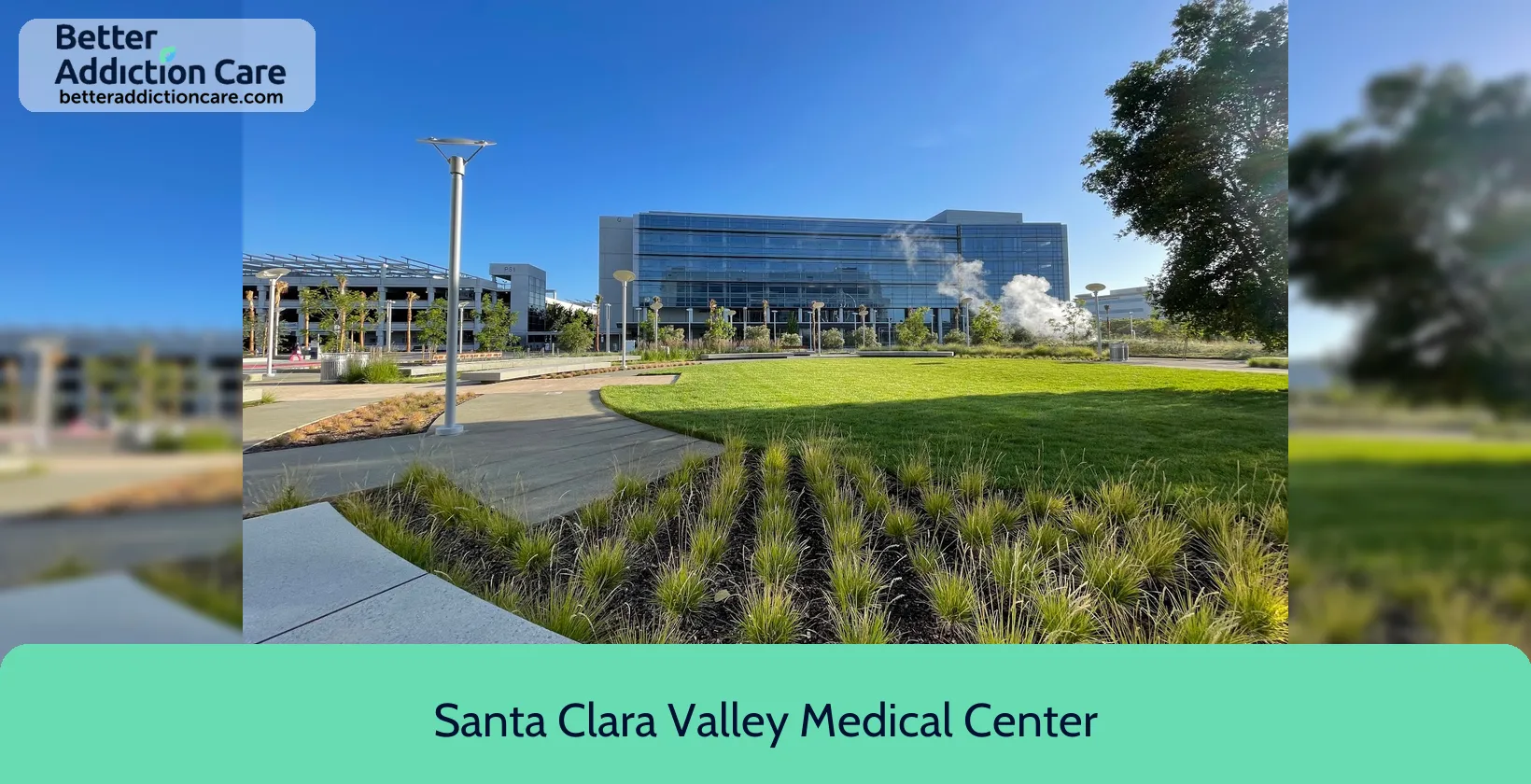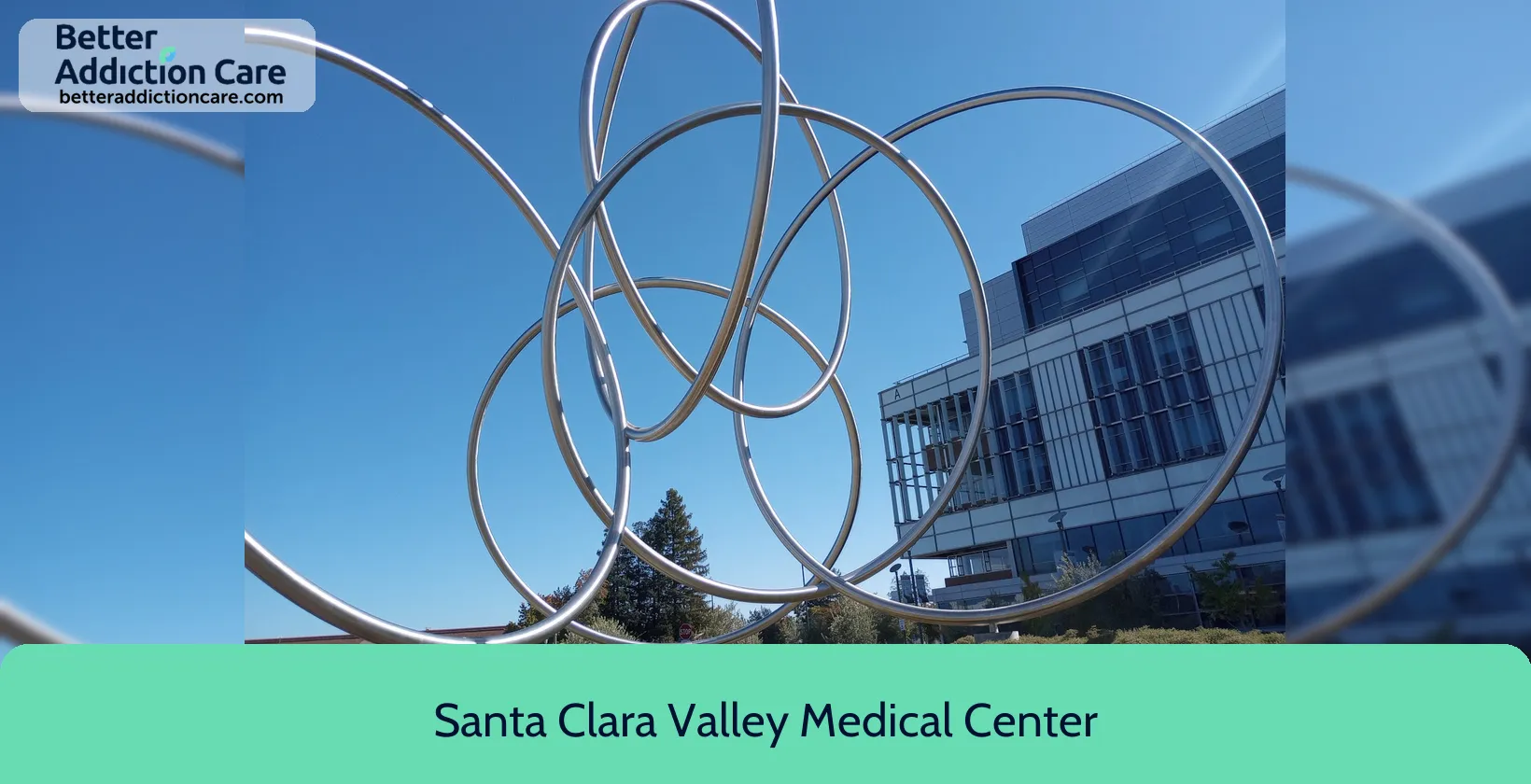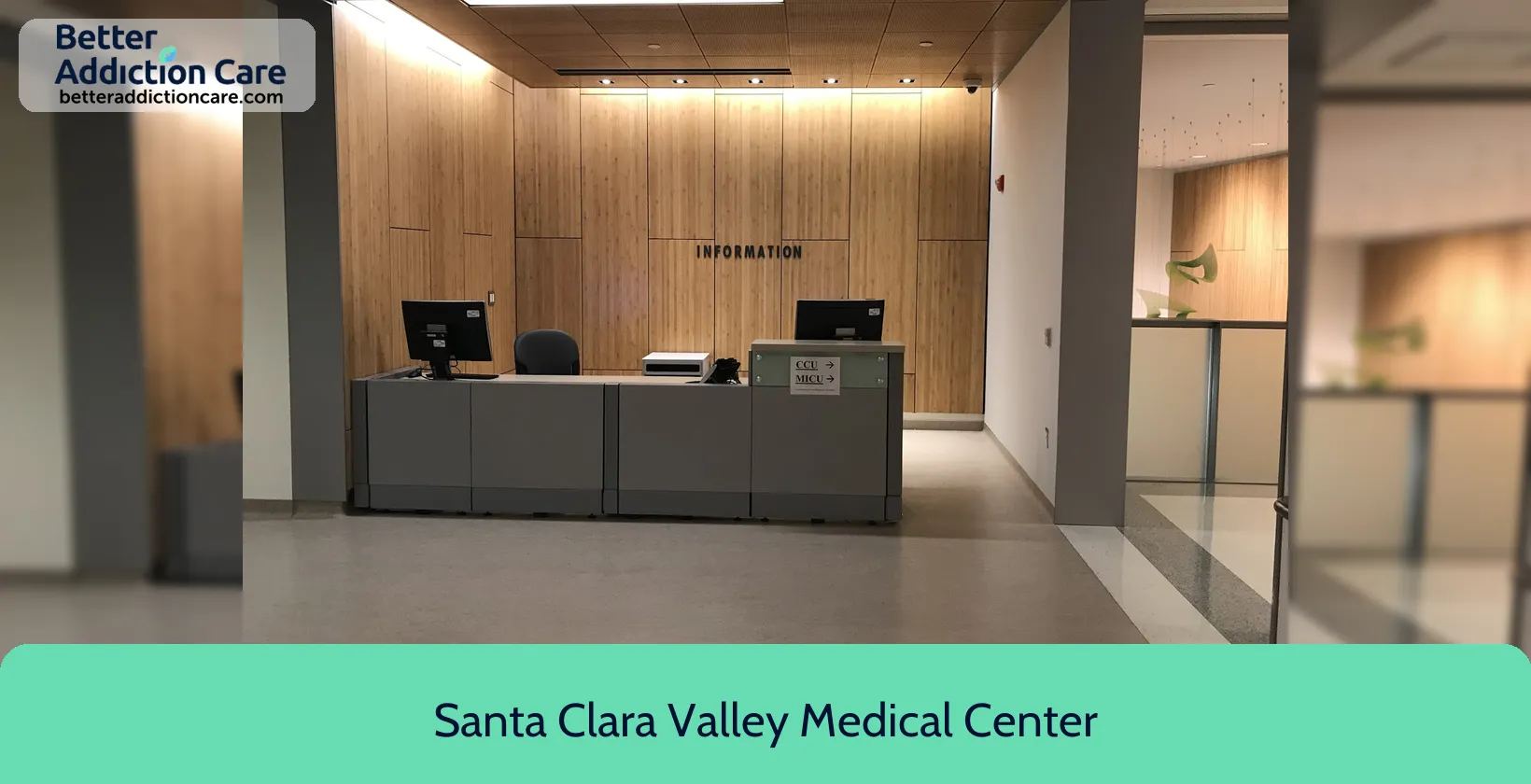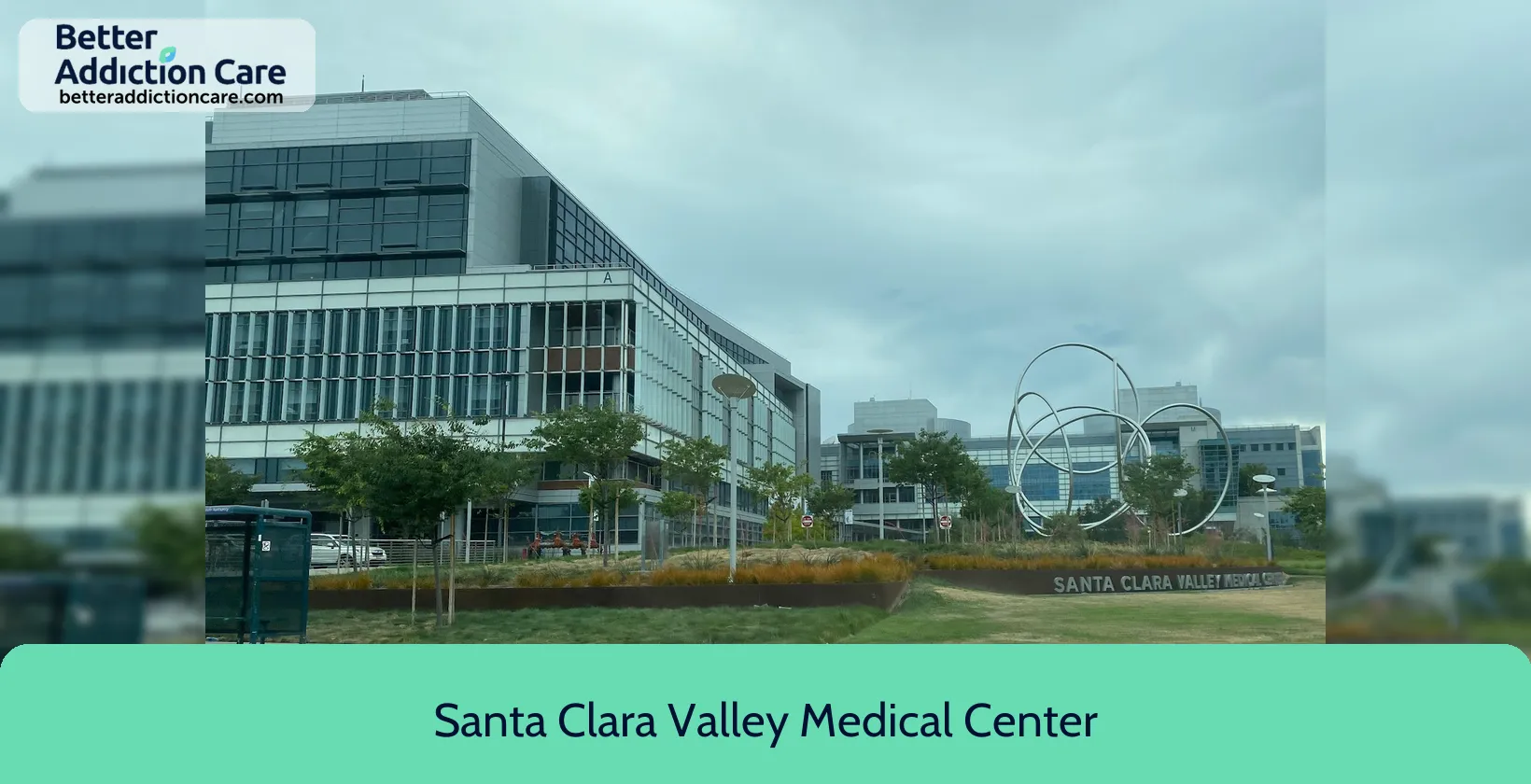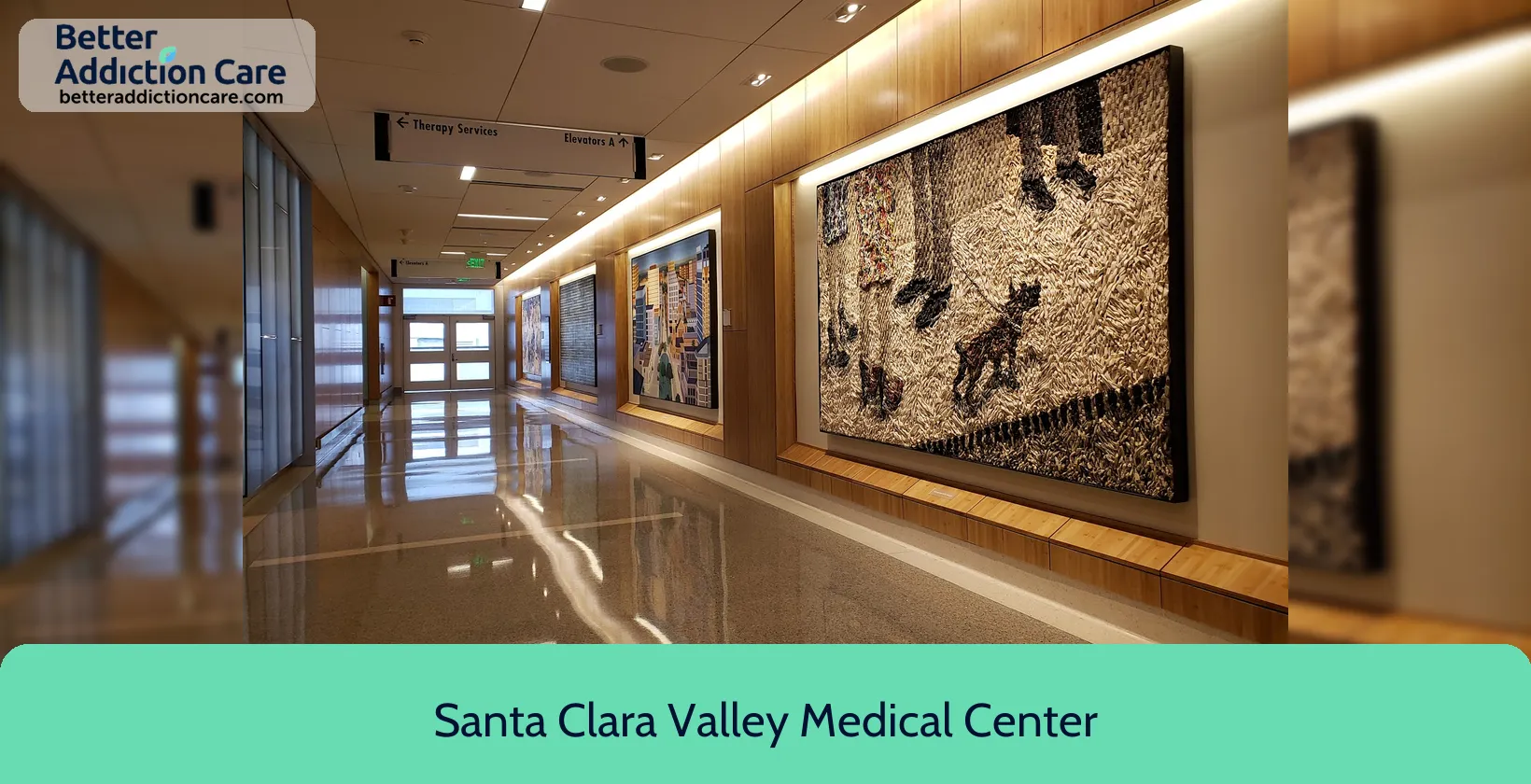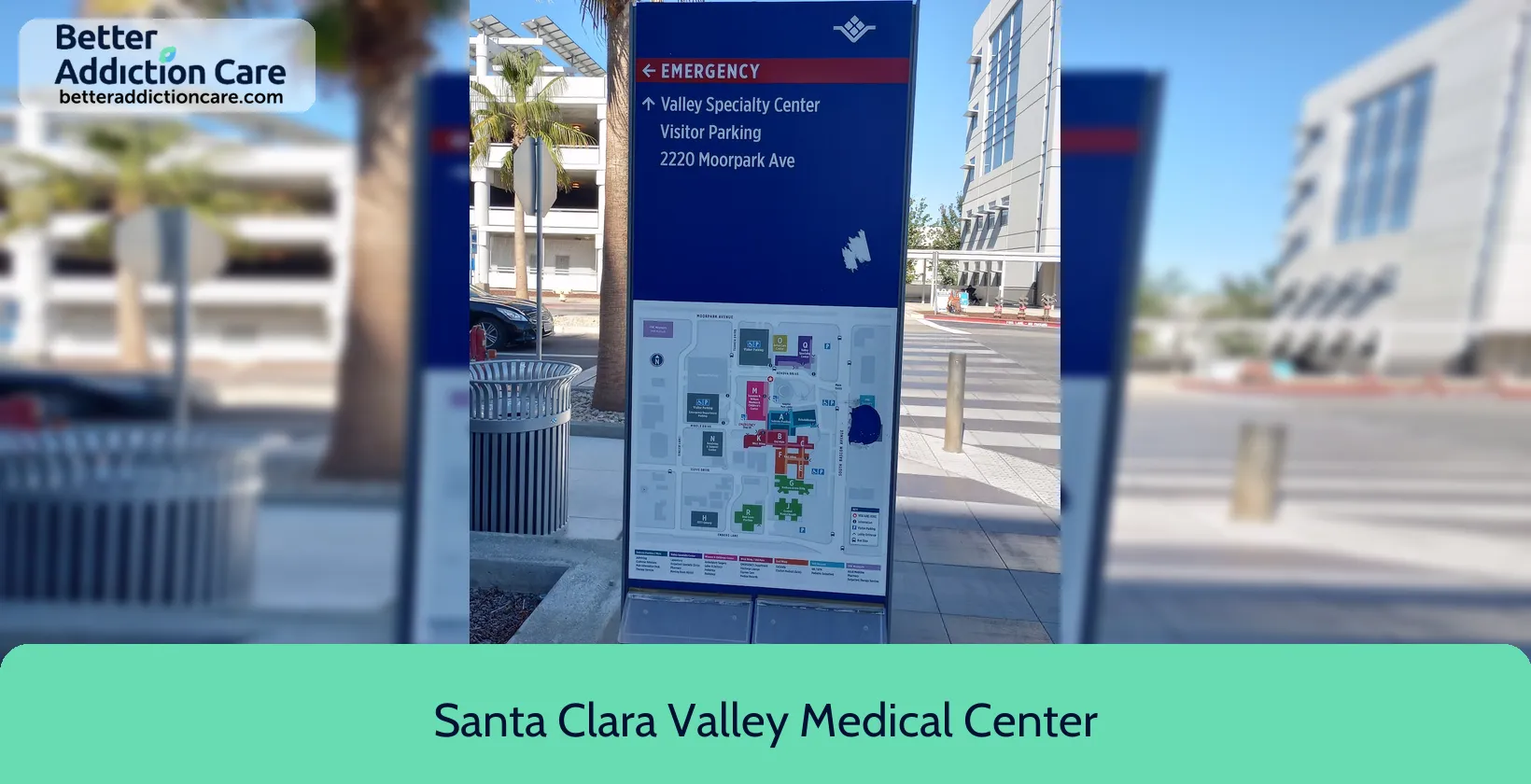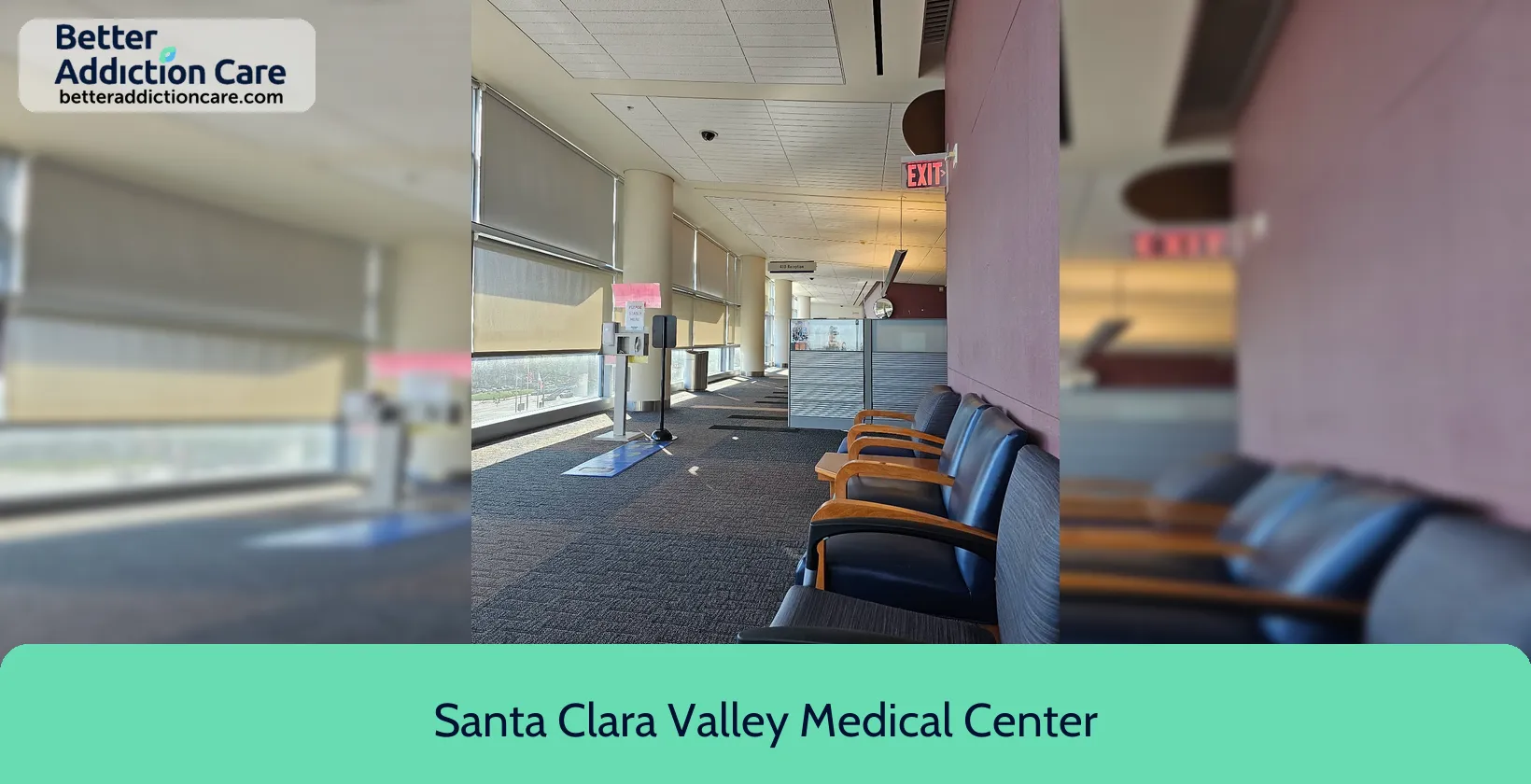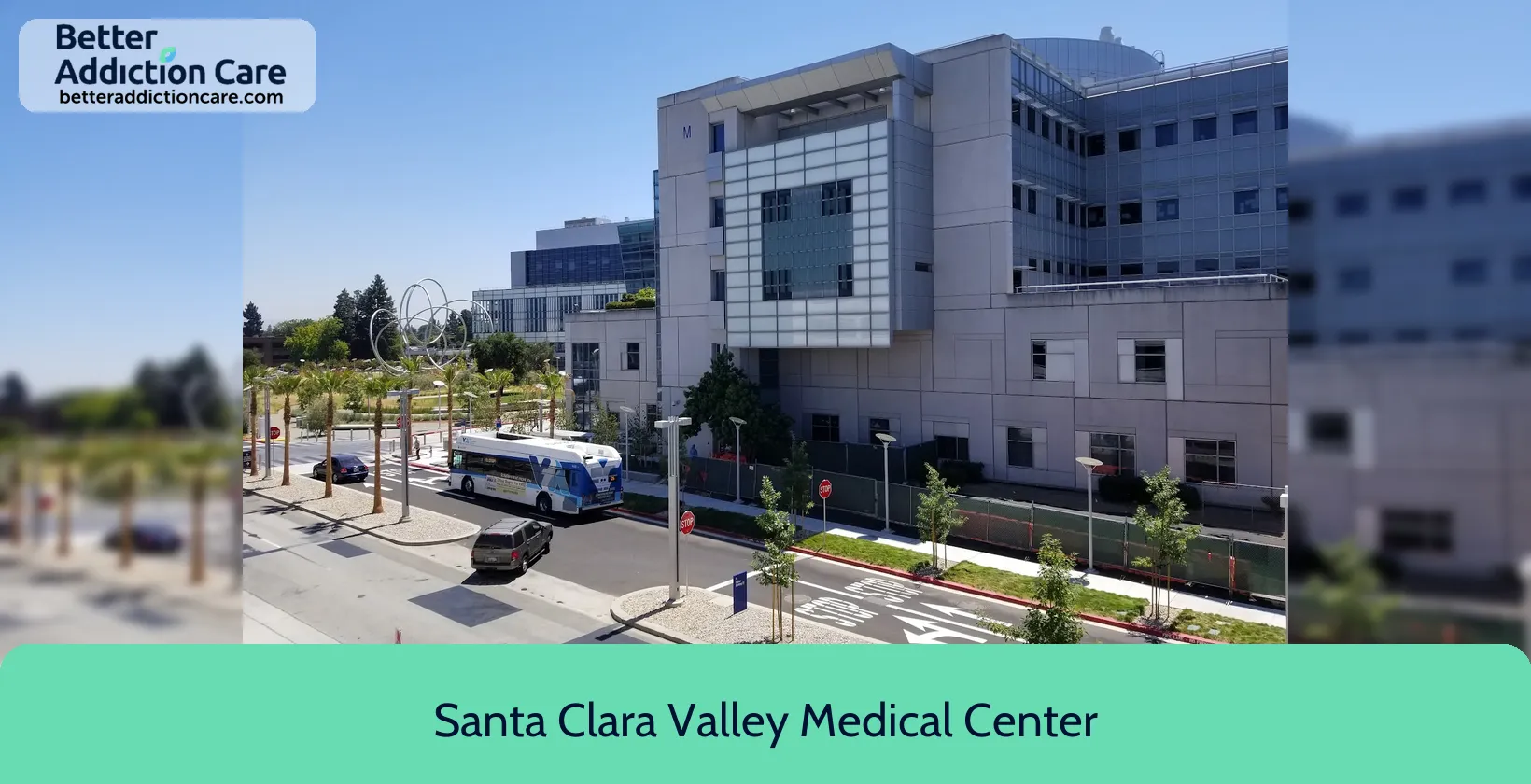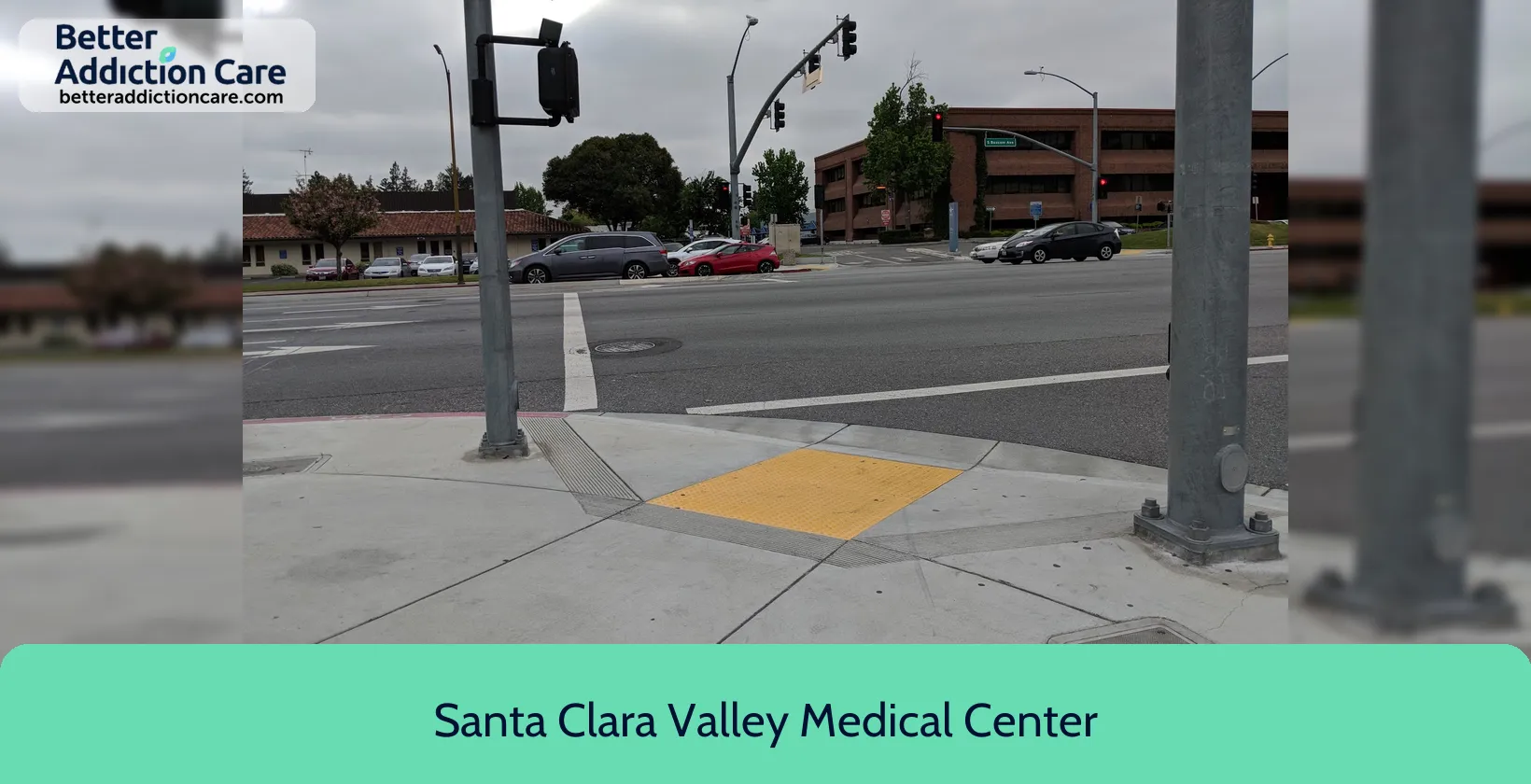Santa Clara Valley Medical Center
Overview
Santa Clara Valley Medical Center is a mental health treatment center for people seeking treatment near Santa Clara County. As part of their treatment modalities for recovery, Santa Clara Valley Medical Center provides individual psychotherapy, cognitive behavioral therapy, and electroconvulsive therapy during treatment. Santa Clara Valley Medical Center is located in San Jose, California, accepting county or local government funds for treatment.
Santa Clara Valley Medical Center at a Glance
Payment Options
- County or local government funds
- Medicaid
- Private health insurance
- Cash or self-payment
- State-financed health insurance plan other than Medicaid
Assessments
- Comprehensive mental health assessment
Age Groups
- Adults
- Children/adolescents
- Young adults
Operation
- State government
Highlights About Santa Clara Valley Medical Center
6.71/10
With an overall rating of 6.71/10, this facility has following balanced range of services. Alcohol Rehabilitation: 8.00/10, Drug Rehab and Detox: 6.00/10, Insurance and Payments: 6.00/10, Treatment Options: 6.85/10.-
Alcohol Rehabilitation 8.00
-
Treatment Options 6.85
-
Drug Rehab and Detox 6.00
-
Insurance and Payments 6.00
Treatment At Santa Clara Valley Medical Center
Treatment Conditions
- Mental health treatment
Care Levels
- Outpatient
- Hospital inpatient treatment
Treatment Modalities
- Individual psychotherapy
- Cognitive Behavioral Therapy
- Electroconvulsive Therapy
- Nicotine replacement
- Group counseling
Ancillary Services
Languages
- Sign language services for the deaf and hard of hearing
- Spanish
Special Programs
- Clients who have experienced trauma
- Persons 18 and older with serious mental illness (SMI)
Get Help Now
Common Questions About Santa Clara Valley Medical Center
Contact Information
Other Facilities in San Jose

6.64

6.74
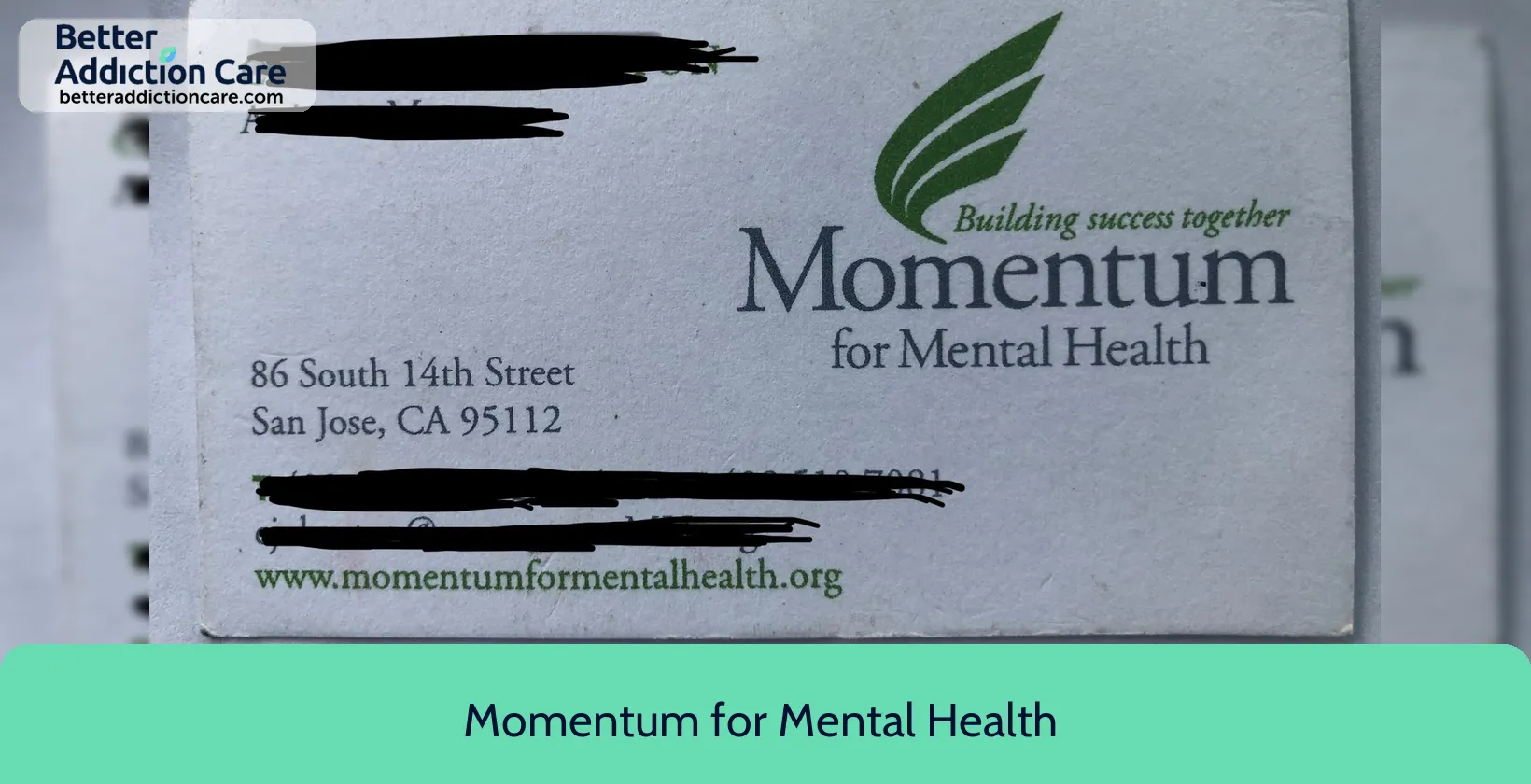
6.65
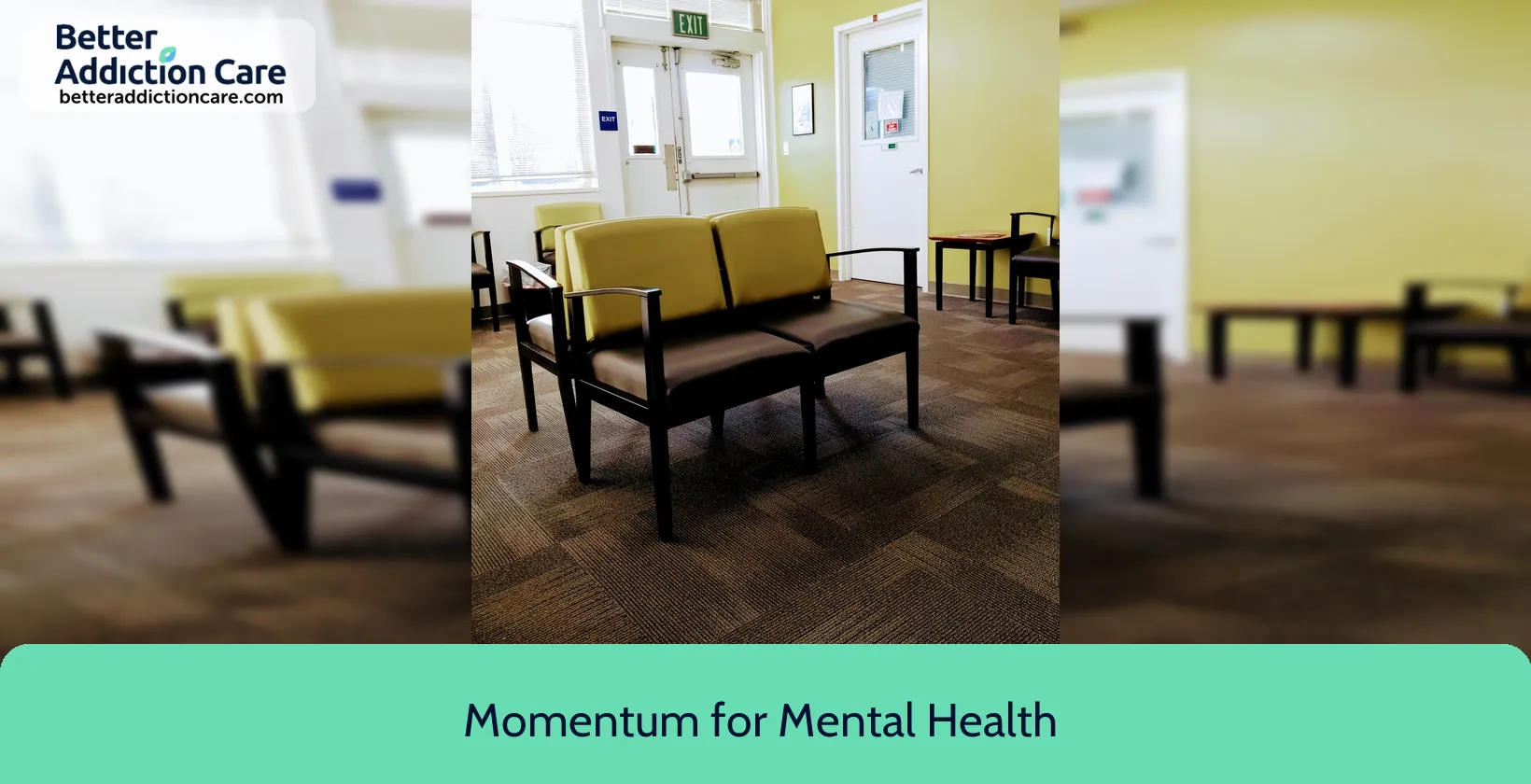
6.71

6.71
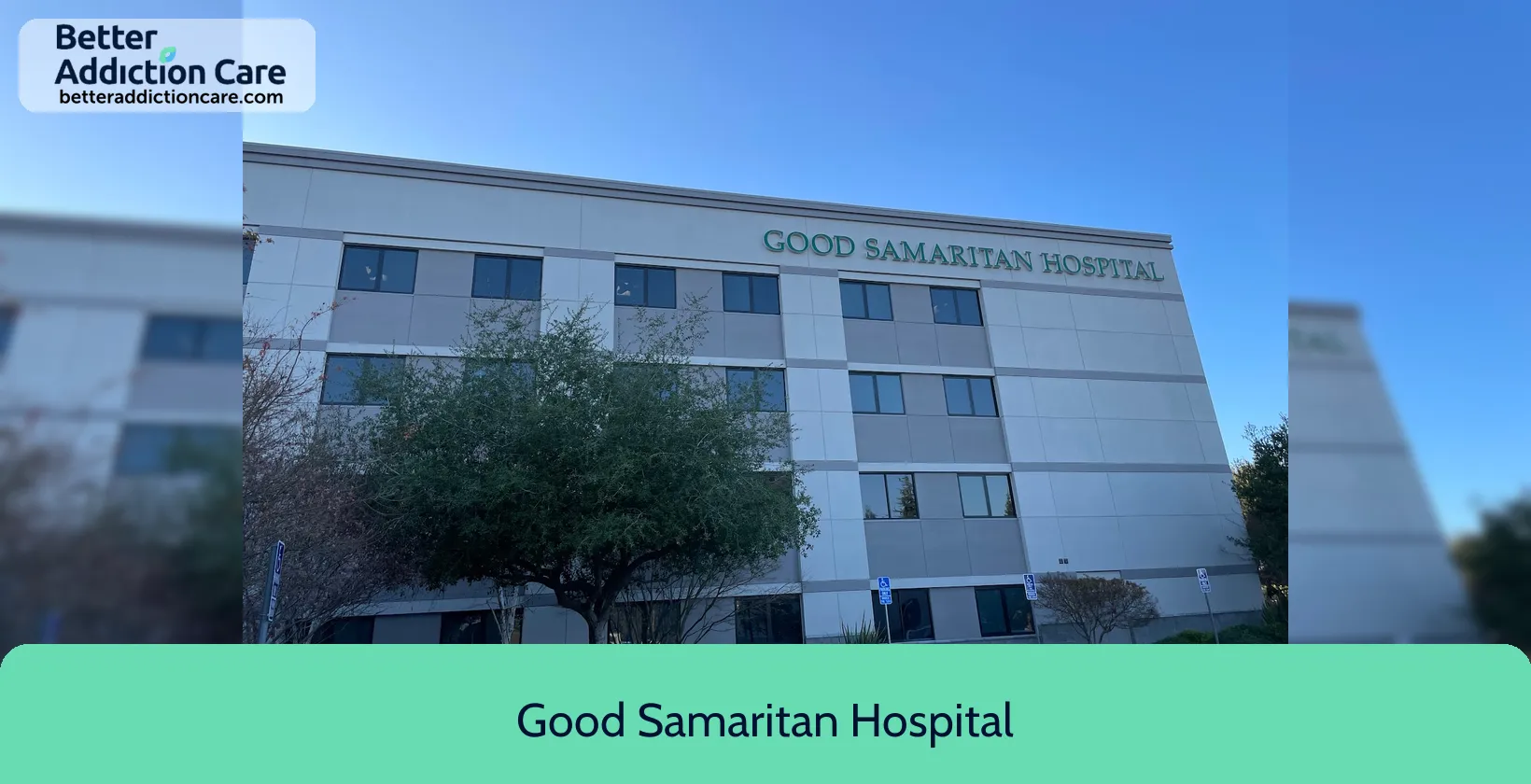
6.68
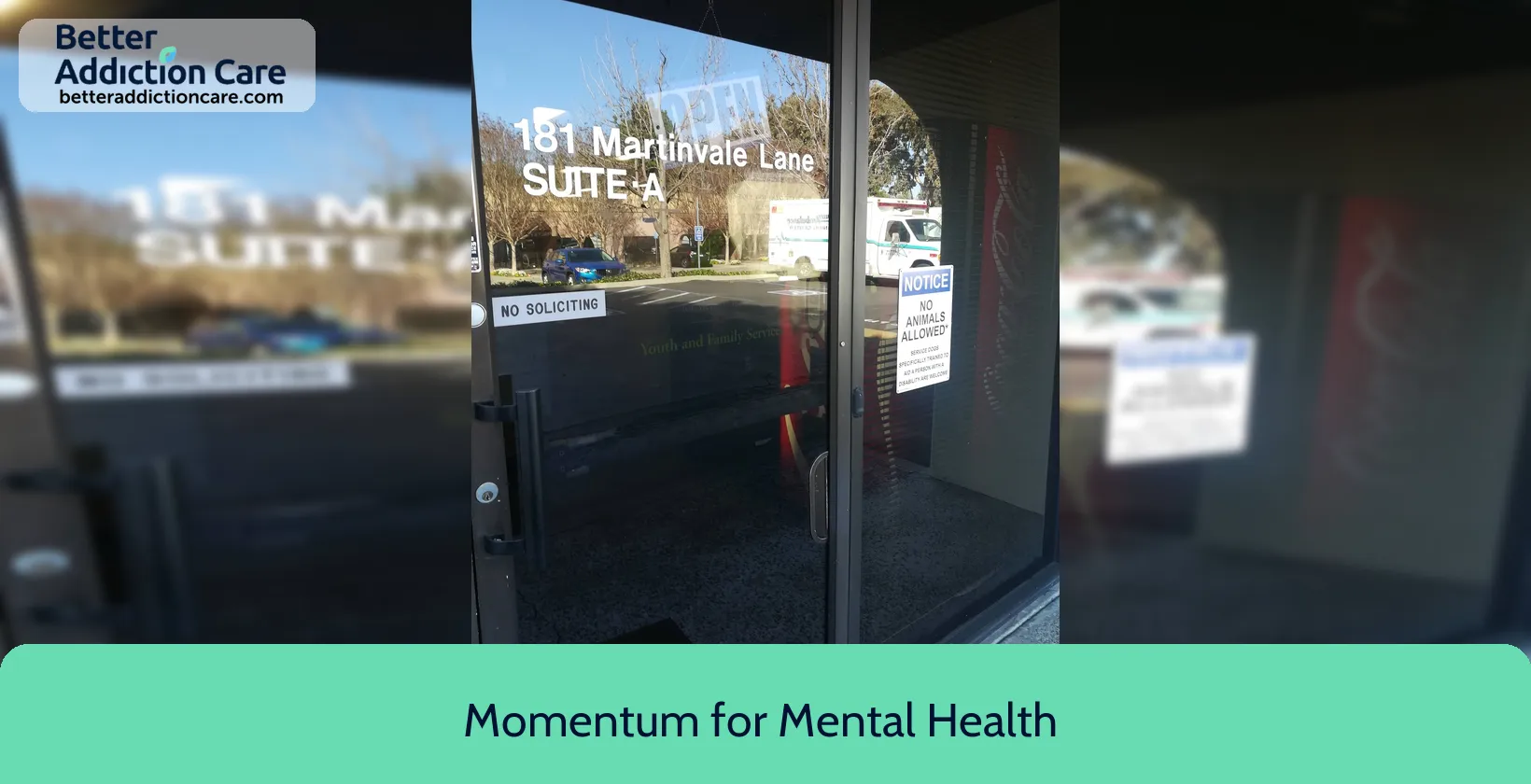
6.74
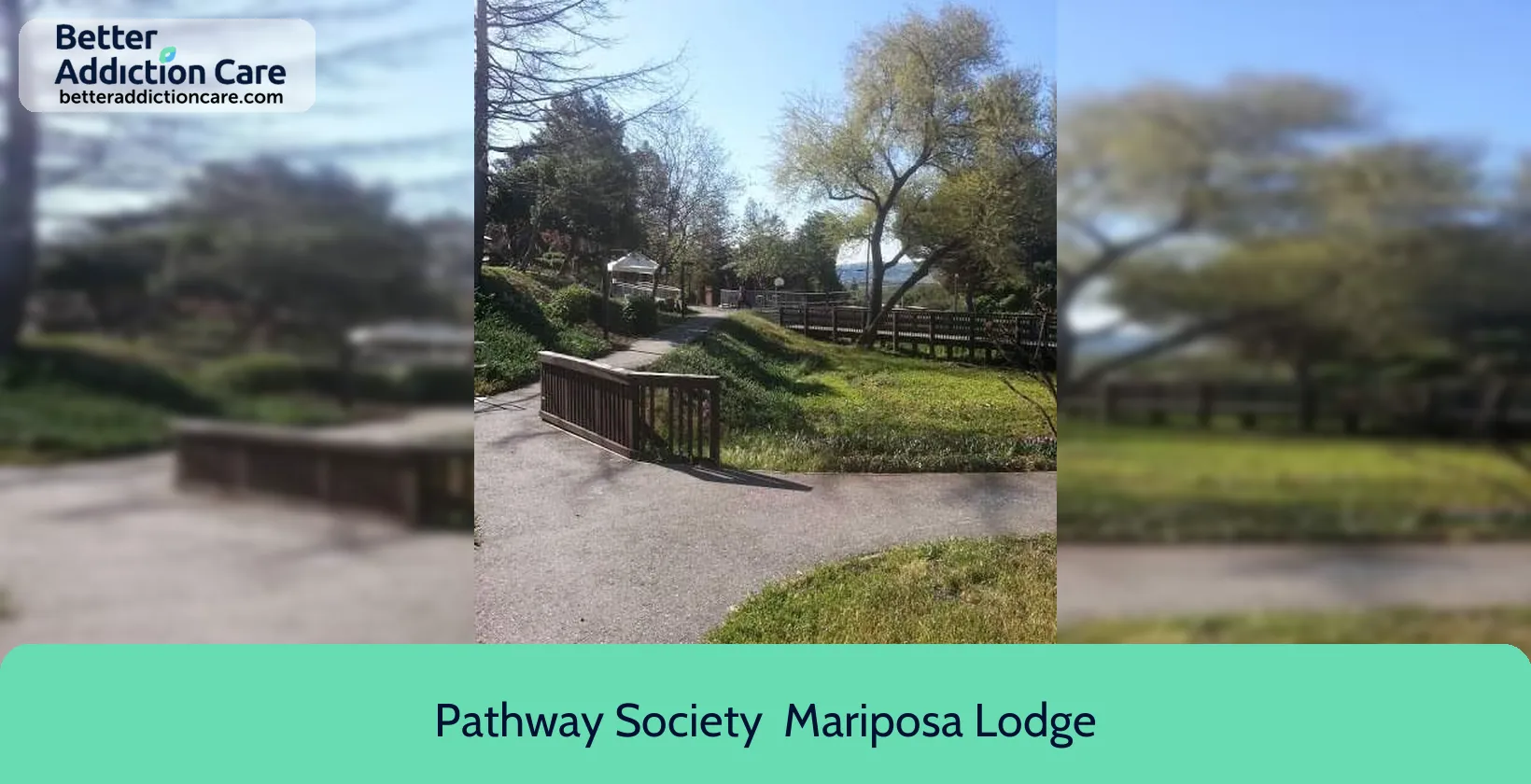
6.77
DISCLAIMER: The facility name, logo and brand are the property and registered trademarks of Pathway Society - Mariposa Lodge, and are being used for identification and informational purposes only. Use of these names, logos and brands shall not imply endorsement. BetterAddictionCare.com is not affiliated with or sponsored by Pathway Society - Mariposa Lodge.
